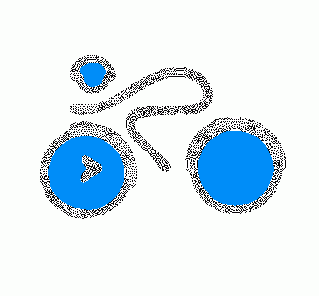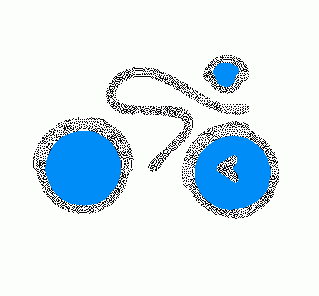| Newsletter - 2018 Archive |
 |
Cycling Club |
 |
| Newsletter - 2018 Archive |
 |
Cycling Club |
 |
Next--->
Travels in Europe: A Cautionary Tale Considering PBP 2019? Well, it takes a lot of sweat (and money) to get to Paris. Many things can go wrong, but if you have an accident overseas… Carol and I headed to Europe this past summer for 3 months of cycle touring (unsupported). This was not the first time for us—we have made over a dozen foreign trips, nearly all with our bicycles. Yet this trip provided a first for us—a crash resulting in the need for emergency help. So I’d like to offer some things to consider that, if we had followed, might have made the fallout less stressful (and expensive) for us. -- Know the emergency call numbers BEFORE you need them! You have a cell phone, but…to quote Homer Simpson, “what is the number for 911?”. We actually had several locals stop to offer assistance and as we were in Germany, we accepted. We then watched them argue over the emergency number. 110? 112? Well, 110 is for traffic (road) emergencies, 112 is for other types. 112 summoned an ambulance. Figure this out at home! -- Know how to contact your insurance provider BEFORE you need them! (Practice in advance!) This was a little trickier. Carol was in the examination room. The doctors were waiting for a decision on surgery. I needed to contact our insurance provider, and yes, we had a card with the phone numbers. And I had 2 cell phones, one on a Canadian travel plan, one with an Irish (good in the whole EU) SIM card. We had made a few local calls with the Irish SIM during our trip, so I’d already figured out how to add the extra symbols and digits required to dial in Europe and I had the card with the phone number. First I tried the Irish SIM, using the International Toll Free number. That didn’t work. Then I tried the North American toll free number. That also didn’t work. No international calls were allowed on our Irish SIM, even toll free. So then I tried the Canadian phone. The international number didn’t work. The 1-800 number did. -- Emergency medical coverage is not adequate! Did you know that emergency medical only covers the emergency? And by that, I mean the ambulance and treatment up to the point where the doctor says “Go away for a few days. We’ll call you when the operating room is available”. The moment the treatment becomes optional, coverage stops. But wait, the surgery was mandatory. Yes, but the timing was optional. Yes, really. Insurance said (not in these words) “Fly your wife home in a temporary cast stuck out sideways and have FREE surgery at home. And get that all done in 5 days before they have to re-break the arm to set it properly.” I learnt you need 3 types of travel insurance: cancellation insurance, which covers you up to departure; emergency medical which covers the initial incident response; trip interruption insurance which covers the cost of getting home unexpectedly in a rush, and may pay for surgery if that is cheaper than emergency travel. The policy I had selected didn’t include interruption insurance. (Medical insurance to cover “elective” surgery (that means timing, not need!) is not available—at least, I haven’t found any.) -- Get a detailed medical receipt that lists all services and procedures We decided that surgery in Germany was the right thing. $5500 on MasterCard for the hospital and $1500 on Visa for travel changes, we arrived home. In filling out forms for the emergency medical insurance, I discovered that MSP (yes our basic everyday insurance) will cover some costs for international medical claims. But…they have to be able to identify items that are in the MSP fee list (like "2 aspirin", "one hour surgeon"…). Germany bills on lump sum— One lot orthopaedic surgery: hip, knee, or elbow, Eu3000. MSP eventually reimbursed us for 3 nights in hospital ($250). -- Shipping bikes home from the hinterlands—have a plan in advance This was the most stressful part of the whole exercise. I couldn’t handle 2 bikes, 3 suitcases (purchased in Germany) and a wife with a broken arm, so I took the bikes to a bike shop to have them boxed and shipped. That was a bureaucratic exercise in futility. “We can’t ship internationally when we the bike isn’t a new purchase.” “We can’t ship internationally if it is a pick up at a business address”. “You don’t have an import license to import bicycles into Canada”. “You need an EU bank account but you need an EU passport to get that.” And so on. I considered leaving the bikes there, and flying back after we were healthy to retrieve them. Finally, I managed to contact BikeFlights in Portland who arranged the shipping for only US$500 (and the bike shop charged C$150 to pack the 3 boxes needed to meet shipping requirements.) We had a great 6 week holiday and a stressful one week dealing with the accident. We were fortunate that the event happened in Germany where the medical costs are reasonable—I’m not sure what we would have done in the US.
Go to: -
November 16, 2018 |